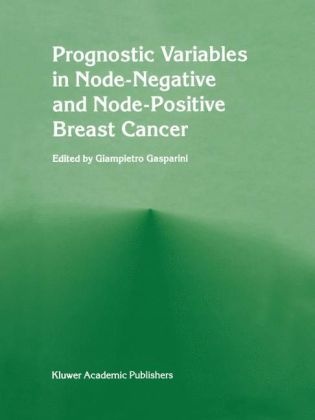Ulteriori informazioni
During the last decade, important advancements on the understanding of the molecular mechanisms involved in tumorigenesis and progression of breast cancer have been made, particularly regarding the mechanisms of control of the cell cycle, apoptosis, metastasis, and angiogenesis. Translation of basic research to the clinical setting by the identification of assessable markers associated with the above biological mechanisms has permitted verification of the clinical significance of several prognostic indicators and has highlighted the heterogeneous nature of invasive breast cancer.Reprinted from Breast Cancer Research And Treatment, this text contains original papers, overviews, and position papers on the methodological aspects and the clinical significance of the more interesting prognostic and predictive indicators. Ultimately, the determination of biological prognostic and predictive markers with easily applicable, reproducible, and standardizable assays is an integral part of future research aimed to improve the management of patients operated for breast cancer in the years to come. Novel therapeutic strategies based not only on chemotherapy or hormone therapy, but directed at interfering with the molecular targets involved in tumor progression and metastasis, warrant clinical testing and are a major challenge to enhance the potential cure of breast cancer.
Sommario
Prognostic variables in node-negative and node-positive breast cancer - Introduction; G. Gasparini. Routinely available indicators of prognosis in breast cancer; D.L. Page, et al. Prognostic factors for patients with breast cancers 1cm and smaller; Y.-Y. Chen, S.J. Schnitt. Steroid hormone receptors in breast cancer management; C.K. Osborne. S-phase fraction combined with other patient and tumor characteristics for the prognosis of node-negative, estrogen-receptor-positive breast cancer; J. Bryant, et al. S-phase fraction and breast cancer - a decade of experience; C.R. Wenger, G.M. Clark. Prognostic and predictive value of thymidine labelling index in breast cancer; D. Amadori, R. Silvestrini. Cyclin D1 in breast cancer; D.M. Barnes, C.E. Gillett. Cyclins and breast cancer; P.S. Steeg, Q. Zhou. Prognostic implications of expression of the cell cycle inhibitor p27Kip1; S. Cariou, et al. The type 1 growth factor receptor family: new ligands and receptors and their role in breast cancer; W.J. Gullick, R. Srinivasan. c-erbB2 expression predicts tamoxifen efficacy in breast cancer patients; S. De Placido, et al. HER-2/neu as a predictive marker of response to breast cancer therapy; M.D. Pegram, et al. Prognostic and predictive value of p53 and p21 in breast cancer; R.M. Elledge. The urokinase plasminogen activator system as a target for prognostic studies in breast cancer; R.W. Stephens, et al. Metalloproteinases and tissue inhibitors of metalloproteinases; M. Toi, et al. Matrix metalloproteinase inhibitors; P.D. Brown. The 67 kDa laminin receptor as a prognostic factor in human cancer; S. Menard, et al. Assessment of intratumoral vascularization (angiogenesis) in breast cancer prognosis; R. Heimann, et al. Cli

